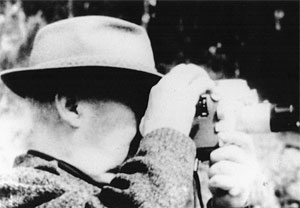 |
||||||
|
HI RES PRESS PHOTOS
ALL PRESS
SF Chronicle Datebook, March, 2024 Local News Matters, March 2024 Local News Matters, November, 2022 The New York Times, March, 2022 San Francisco Chronicle, June 2012 La vida nos estremece October 2011.pdf The Village Voice, October 2010 This Week in New York blog, October 2010 Tribeca Film Institute blog, October 2010 Senses of Cinema, Issue 53, January 2010 San Francisco Chronicle, October 2009 San Francisco Bay Guardian, November 2005 San Francisco Chronicle, November 2005 San Francisco Weekly, November 2005 San Francisco Examiner, October 2005 Scene 4 Magazine, October 2005 San Francisco Bay Guardian, March 2005 Contra Costa Times, April 2004 San Francisco Bay Guardian, November 2002 Vogues Hommes International, Spring/Summer 2002 (pdf) Miami New Times Review & Interview 2001 San Francisco Chronicle Review, 2001 San Francisco Examiner Review, 2001 San Francisco Bay Guardian Review, 2001 San Francisco Chronicle Profile, 2001 Movie Magazine International Review, 2001 The Stranger (Seattle) Review, 2001 San Francisco Weekly cover story, 2000 New York Times Profile, August 2000
FILM REVIEW By Stephen Holden Hitler loved chocolate eclairs, pornographic cartoons and American movies (his favorite was "The Lives of a Bengal Lancer") and revered Richard Wagner as an artistic god. He couldn't stand tobacco and had problems with stomach gas. Mussolini was extremely fastidious, loved athletics, had several mistresses and became obsessed with bowler hats. Stalin, whose name, a pseudonym, meant "man of steel," loved smoking cigarettes and playing practical jokes. Franco loved hunting (in one year he bagged 8,420 partridges) and watching television. His last words were a complaint about how hard it was to die. Both Stalin and Franco were short men who stood only 5-foot-4. But of the five 20th-century despots who tell their own stories in Jay Rosenblatt's unsettling film, "Human Remains," by far the quirkiest is Mao Zedong. The Chinese Communist leader never bathed, smoked 70 to 80 cigarettes a day, rarely rose before noon and never brushed his teeth (he cleaned them with tea). He required an enema every two or three days and liked to sleep with several young women at the same time. Such humanizing bits of trivia (the facts are all taken from respected biographies) are the heart of the chatty autobiographical sketches that make up this half-hour film, the longest segment in an 80-minute program of five cinematic mosaics by the San Francisco-based experimental film maker Jay Rosenblatt. The program, which opens today at the Film Forum, could be described as a unblinking, surreal post-Freudian meditation on evil from a Jewish perspective. For all its surface lightness, "Human Remains" is anything but frivolous. Accompanying the dictators' off-camera voices (actors narrate their remarks in native languages that are simultaneously translated into English by other voices) are grainy black-and-white photos and news clips of the dictators at work and play. Occasionally a horrific observation is slipped in, like Stalin's remark about his first wife's suicide: "With her died my feeling for all humans." The monologues are spliced together with recurrent images of a gravedigger turning over the earth. These images give the film a ritualistic gravity that gathers force, so that by the end you feel the oppressive weight of the 20th century and begin to realize that many of its deepest mysteries can never be solved. How was it that tyrants played such a large and devastating role in 20th-century history? And what, if anything, separates them from the rest of us? The apparent banality of their lives suggests that far from being different from everybody, they were ordinary people. This is a painful idea to swallow, but in the context of the program's other films it makes a tragic kind of sense. "King of the Jews" is a highly emotional 18-minute personal essay on Christian anti-Semitism that weaves together history, autobiography and snippets of Hollywood films depicting the life of Jesus. The narrator, who is Jewish, confesses his childhood terror of Jesus, which was related to anti-Semitism and the prevalent notion that Jews were responsible for Jesus' death. From there the film brings in historical research to disprove that point. Finally, in an astounding dramatic leap, it parallels an excruciatingly graphic silent-film portrayal of Jesus' persecution and Crucifixion with documentary scenes of the Holocaust. The program's other three films -- the 21-minute "Smell of Burning Ants," the 10-minute "Short of Breath" and the one-minute "Restricted" -- distill Mr. Rosenblatt's grim deterministic vision of the socialization process. In "The Smell of Burning Ants," silent home movies accompany Mr. Rosenblatt's first-person interpretation of his boyhood. It is a bleak tale of ritualized desensitization through sports, running with the pack, torturing insects, beating up weaklings and learning not to cry. In the movie's most ambiguous image, one in which Mr. Rosenblatt implicates himself, the same little boy is shown pointing a gun, then putting his eye to a lens and aiming a camera. Shooting people and shooting movies about people, he suggests, requires a certain detachment. By implication, an extreme disengagement is what allows despots to wreak evil with a clear conscience. THE FILMS OF JAY ROSENBLATT Films produced, directed and photographed by Jay Rosenblatt: "Short of Breath"; "The Smell of Burning Ants," written and edited by Mr. Rosenblatt, music by Erik Ian Walker, narration by Richard J. Silberg; "Human Remains" written and edited by Mr. Rosenblatt, with the voices of Karl-Heinz Teuber, Adrian Morgan, Pierangelo Peri, Chris Cook and Daniel Bojckov; "Restricted"; "King of the Jews" written and edited by Mr Rosenblatt. At the Film Forum, 209 West Houston Street, South Village. Total running time: 80 minutes. These films are not rated. |
||
